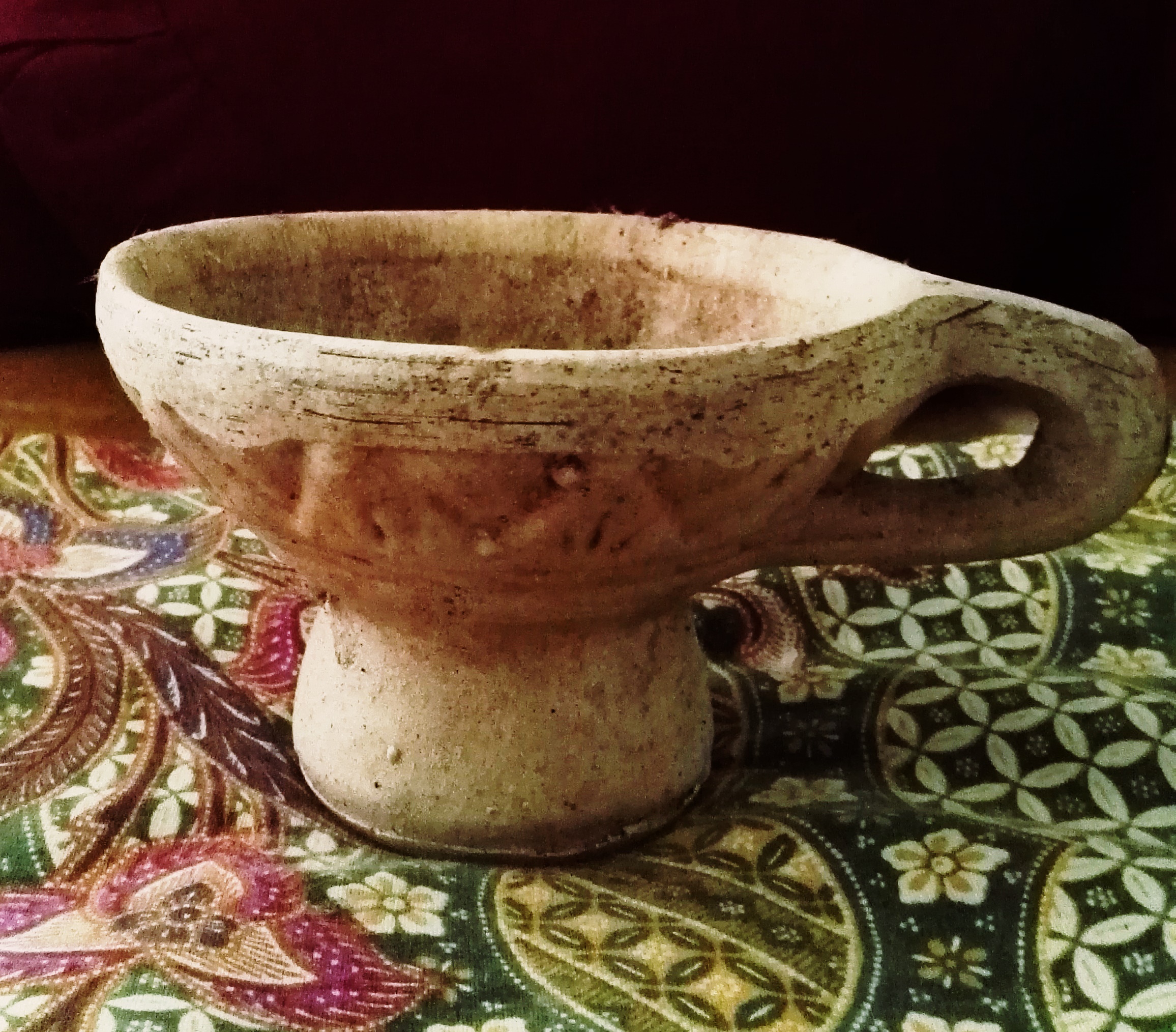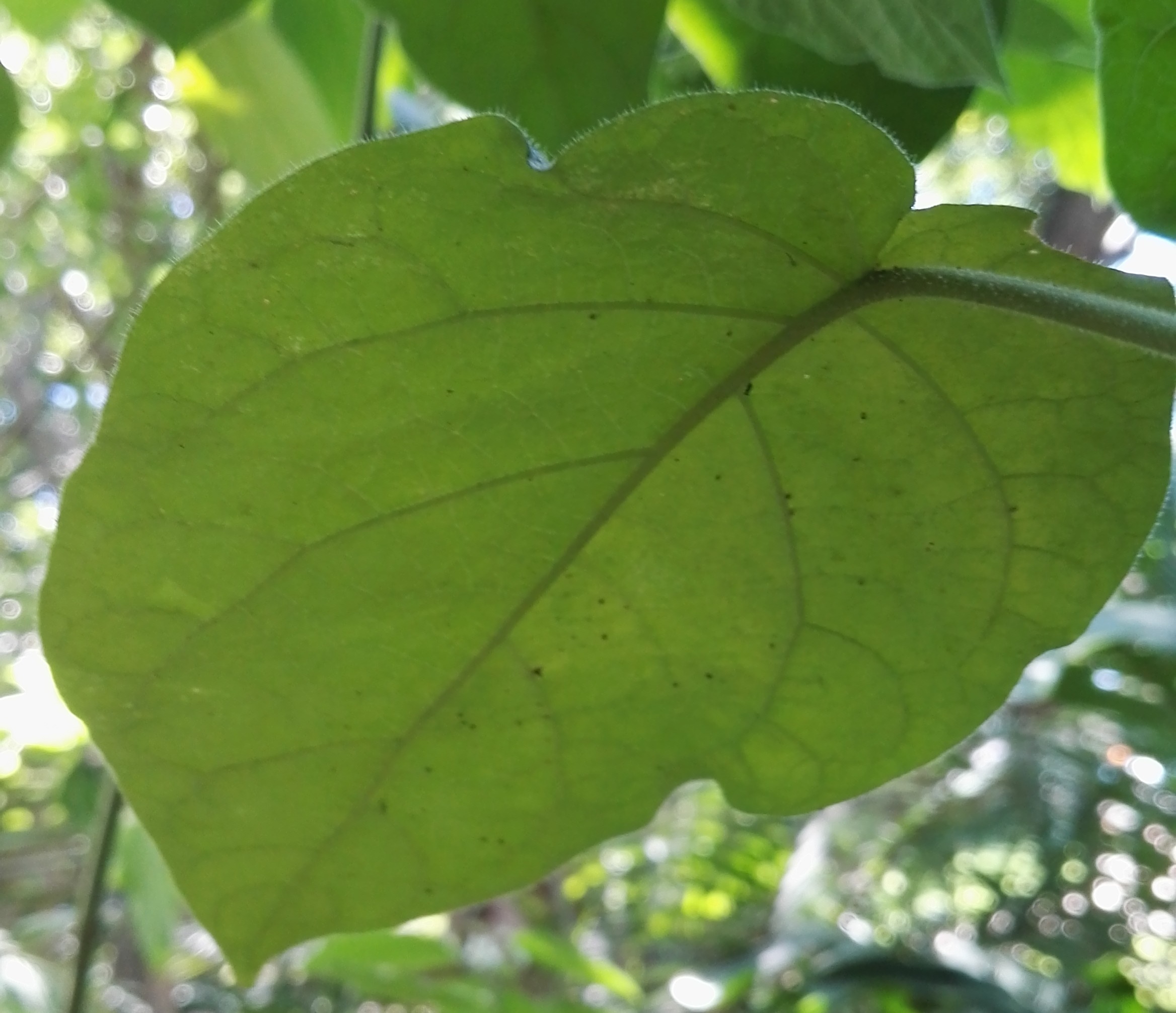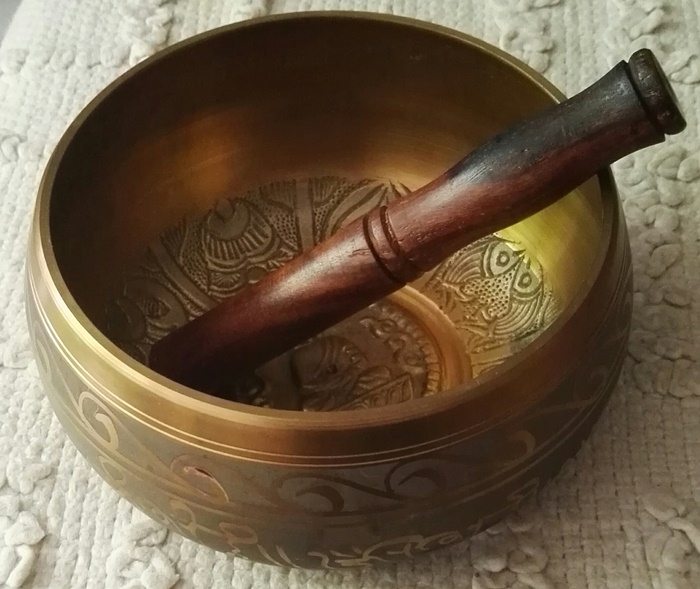An excerpt from my book, In Ways Uncommon and Unknown. This is from the chapter The crisis of ‘What Is’
In extraordinary and uncommon ways, Love uses the madness of the Ego to bring us back to itself. This is the paradox of suffering, that while threatening to destroy us, it is the very ground upon which our ‘hidden wholeness’ is revealed to us. Eckhart Tolle, the contemporary spiritual master, says:
Whatever the present moment contains, accept it as if you had chosen it
What an empowering attitude to have! You can never feel a victim with such an attitude and outlook.
It is important to understand that ‘what is’ is a moment to moment experience, not the story that we build around an event, a thought, memory, feeling or emotion. ‘What is’ is only in the here and now. A story, on the other hand, is made up of memory and projections, triggered by a thought, a memory, a feeling or an emotion.
This may seem like a very narrow definition of ‘what is’ and of no apparent use to us. It’s all very well to notice each thought and feeling but that is not how we live our lives. That is not how our lives are organized. Our lives are organized around and driven by stories, plans, goals, timelines and deadlines. We are physical creatures living in a time and space bound reality. We have to be able to manage this. Noticing each discrete thought or feeling isn’t going to be much use.
Hmm…there does seem to be a disconnect, doesn’t there, between ‘what is’ and ‘life’. But let’s see if there is any meaningful connection between ‘what is’ and ‘life’.
I often have to remind myself and the people I work with (my clients) that life is only ever lived moment by moment. Most of us don’t take that fact too seriously. In fact, we often laughingly dismiss it because in the back of our minds, we’re pretty sure we’re going to be here in the next moment and the next and the next. Heck, we’re going to be here this evening and tomorrow and next week and next year. We wouldn’t be making plans for the future if we didn’t assume that, right? Sure, it’s a ‘fact’ that the present moment is all we have, but really, what practical value is it to keep such a fact in the forefront of our mind?
Let me suggest what that practical value might be:
If we understand in a deep and meaningful way that now is the only moment we have, we might start valuing it a bit more. We might learn to be a bit more present to it. We might learn to be so present that we are less caught up in meaningless, unconfirmed, unprovable stories about the future. We might save ourselves a heap of worry, anxiety and yes, stress, which has a very unmistaken effect on our bodies.
As we learn to be more present to each moment, in each now, we might begin to experience the infinite power and potential that each ‘now’ presents. We might, for instance, experience the calm, the peace and the freedom that we actually are rather than the turmoil, rage, fear or powerlessness that our stories evoke in us and compel us to identify with. (Note: In truth, ‘now’ is not a recurring thing but an ongoing thing. Wherever and whenever we are, it is ‘now’. The only recurring thing is our attention to the eternal ‘now’)
The peace, power and freedom that we experience in the now can slowly replace our default conditioned state of anxiety, worry, doubt and stress. The more we practice being in the now, the more we bring that peace, power and freedom (or creative potential and limitless possibility) into the rest of our life.
When we practice noticing the fearful thoughts and feelings in the now without attaching to them or avoiding them, we experience their natural rising and falling away. And we experience the peace, power and freedom of not falling under their sway. This is a real, personal experience and it is powerful. We can draw on this experience and the memory of it in our other life experiences.
Tina had been working with me for some weeks as part of a twelve-week Mentoring and Meditation program. As a social worker, she was used to helping others with their problems. But a problem of her own which was causing her considerable unhappiness was what brought her to me. Her relationship with her new partner had begun to show some serious cracks. In particular, she had discovered his addiction to pornography and this not only shattered her trust in him, it was also feeding her own insecurity and lack of self-love.
Our sessions gave her a chance to talk about herself, her concerns and about her partner. It also gave me the chance to talk about the nature of the mind, both its Ego-conditioned state of consciousness and its unconditioned God/Love state of consciousness. And it was the time when I guided us both in meditation practice, entering into the here and now and noticing the nature of the mind in a very direct and immediate way.
Tina enjoyed these sessions especially the meditation practice which gave her a break from the oppressive thoughts about her situation, fears about the outcome of her relationship and the gnawing pain of her judgments about herself. However, it was not until the eleventh week of the program that she reported experiencing the benefit of her meditation practice (which she was required to do daily) in a very powerful and transformational way. In her reflection sheet which she had to complete before each session and in her feedback to me, she said:
Mark had promised he would stop the pornography thing two weeks ago but last Thursday, I found that he had been on it the night before. I was shattered. I thought this was the last straw. After all, he had come with me to see you and he had been having sessions with you privately. I thought that it was going to be different. That night, like so many other nights before, I couldn’t sleep. I tossed and turned and in the end, like I’ve often done, got out of bed and went into the living room. I picked up the remote to turn the TV on like I’ve done in the past. But this time, I stopped. Instead of turning the TV on, I just sat on the couch, closed my eyes and I began to notice my mind. I just started watching the thoughts and the feelings in my mind and in my body. I just kept doing that. I don’t know how long I did that for. There were tears down my cheeks but it wasn’t as if I had felt any great pain. I had noticed my sadness but I hadn’t really felt any pain. I felt peaceful and calm and I went back to bed and was able to sleep. It was an amazing experience.
I asked Tina if she realized that the ability to watch her mind by being present was something that is always available to her. She nodded with the biggest smile I’d seen on her face.
Now that you’ve experienced it, I said, you know you can experience it again and again and again.
As we practice being in the now, we experience our ability to notice pain without resisting it and without obsessing over it and becoming overwhelmed by it. Without even trying, we create new neural networks that give us a different configuration and association with pain, one that actually facilitates the natural and effortless alleviation of pain. Pain, we will discover, is a function of the resistance we bring to a situation.
Some years ago, I took part in a ten-day, silent Vipassana retreat. It involved up to fourteen hours sitting meditation each day. At the time I attended the retreat, I had been doing four hours of sitting meditation daily. It did not prevent the pain I was to experience during the retreat. I would shift my body this way and that every few minutes to try and shift the pain but it was an ongoing struggle. There would be long periods when all I could focus on was the pain and most of my thoughts revolved around it.
When is this session going to end? I should have sat in that position at the start, then maybe the pain wouldn’t be so bad now. I really don’t want to move. That would be like failing. Oh, this is just awful. Shall I move now? Wait, wait just a little bit longer. Can I move without making it obvious? How are other people doing? Nobody else seems to be moving as much as me. Let me take a few deep breaths. Nope, that hasn’t helped. My whole leg has gone numb. I must move or I’ll cut off my blood supply for good. I’m going to move now. No, wait. Okay, just a little bit longer. Noooo, I have to move now. Oh, my god, what relief. This is crazy. Why did I wait so long? Isn’t this my Ego trying to protect its self-image? Focus. Bring your mind back to the breath. Bring it back to the body. Let’s watch this part of my body. Why? Am I avoiding the other part? Isn’t that exactly what the Ego wants me to do? It’s hurting. Oh my god, if I don’t move, I’ll faint. And on and on it went for five days.
On the sixth day, something happened. I finally noticed how I had been resisting the pain, not wanting it and wanting a pain-free time instead so that I could actually meditate! How silly I had been! As if feeling pain and noticing it was not meditation!
That realization made me pay attention to the pain in a different way. Suddenly, my body just relaxed as I watched the pain without wanting it to go away. I just watched it with a relaxed but alert curiosity. I didn’t want to accomplish anything other than really observe what was going on in that part of my body.
The more I watched, the more I noticed. What I had been calling ‘pain’ was simply things happening in my body – various sensations and movements of ‘something’ (electric currents?) in various directions. As I continued watching this drama of events beneath my skin, I had an insight :
Pain is the result of resistance to what is.
When I stopped resisting, there was no more pain. I was able to sit for the next four days without feeling a need to move much at all.
As we notice the rising and falling away of our habitual thoughts and feelings without either attaching to or avoiding them, we access the ground of potentiality from which all thoughts and feelings arise. We access it without the weight and obstruction of habitual thinking.
Without any effort at all on our part, we find ourselves in the creative flow of love. It is both healing and inspiring. Even though we have not set out to be either healed or inspired, these are natural and spontaneous outcomes of being present in the now. Solutions and insights relating to things that we may have been troubled by for a long time become effortlessly available to us.
I don’t enter into the practice with the hope of becoming peaceful or gaining an insight…Experience has showed me that that only gives my mind a different goal to pursue. Instead, I enter into the practice with the sole intention of tuning into the now, of seeing whatever there may be to see and to experience in it
I have a habit of interrupting my work or my thinking on a problem or situation, physically moving away from where I am to spend a few minutes in sitting or walking meditation. I cannot tell you how many times I have returned to my work or the problem or situation with a clearer mind and an insight or an intuition about how to proceed.
In fact, I have learned to notice very quickly when something I am working on has become effortful. This could be in my writing, in my work with clients or in a personal problem I am facing. It has become a trigger or reminder to detach and become mindful, tuning into the present, the eternal now. It has always helped me to return to a state of peace and re-energize. I don’t enter into the practice with the hope of becoming peaceful or gaining an insight.
Experience has showed me that that only gives my mind a different goal to pursue. Instead, I enter into the practice with the sole intention of tuning into the now, of seeing whatever there may be to see and to experience in it. I have always benefited from it.
The Ego will resist our attempts to let go of our desire for peace, for calm, for solutions. It will insist that that is the only meaningful reason for getting ‘present’, for being with ‘what is’. It simply will not accept that you might want to sit with ‘what is’ for no reason other than to sit with ‘what is’. It will begin its mind games.
Why do you want to sit with ‘what is’? Isn’t that because you really want peace? Isn’t that your real motivation? Your hidden agenda? Why pretend otherwise? Aren’t you just playing games with yourself? What’s wrong with wanting peace? That’s a perfectly reasonable and loving thing – to desire peace? Why pretend that that’s not what you’re after? Why…
When I first began practicing meditation consistently many years ago, I was attacked by these questions and accusations. Initially, I would attempt to defend myself, to explain myself to the Ego (multiple personality disorder??? :)). But I quickly realized that this was yet another avoidance strategy that the Ego uses to prevent us from being totally present with ‘what is’ for in that presence, the Ego is no more. In that presence, the Ego dies, if only briefly.
The Ego will never run out of questions. It will never run out of ways of accusing us, persuading us to doubt ourselves and question our motivation. And it will do this in what appears to be a most concerned and self-caring way. It assures us it is just trying to keep us honest, so that we don’t go on a trip with our fanciful ideas, our noble intentions. And all this time, it keeps us from being present…
All of these questions and self-checks are useful but it is important to understand two things about them:
- There is a proper time for them and that is not during the time we give to our Mindfulness practice (Think about it: Isn’t it fascinating that outside our practice time, we are rarely visited by these questions?)
- If we want to seriously engage with these questions, the best way to do it is with a calm and clear mind, a mind that is imbued with the quality of mindfulness, of presence
Spending time in the present, in the now, proves to us that we can step away from our worldly preoccupations, our urgent deadlines, our important plans and planning and our life-threatening problems and stories and that we’re not going to be any worse off than we were before we gave time to the now.
If anything, we are likely to find that we can return to our worldly concerns with a fresher, clearer and lighter mind. And we might even find that some of our most urgent or life-threatening concerns are not so urgent or life-threatening after all. Effectively, we bring a far less conditioned, habitual and uncreative quality of thinking into our situations.
Mindfulness has helped me succeed in almost every dimension of my life. By stopping regularly to look inward and become aware of my mental state, I stay connected to the source of my actions and thoughts and can guide them with considerably more intention – Dustin Moskovitz
MENTORING
Let Life express itself intoxicatingly, uniquely, powerfully and limitlessly in, as and through you. Don’t settle, whatever your age. Know your true Self. Follow your Bliss. Live the Life that you know you want to! Contact me here.
MINDFULNESS ONLINE
Join me every week to sit in the presence of your true Self and experience the greatness of Life flowing naturally, effortlessly and powerfully in, as and through you!


